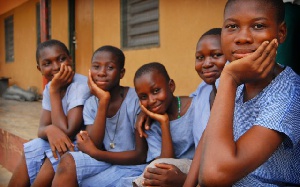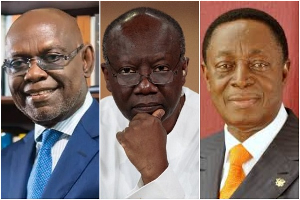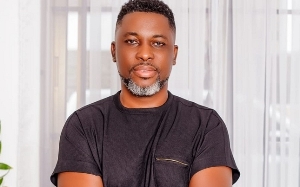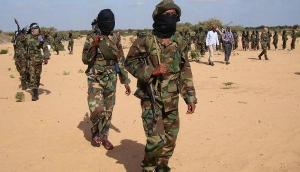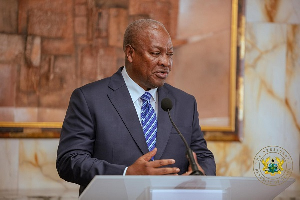About 120,000 students in senior high schools across the country will benefit from the free boarding programme introduced by the government of Ghana for the first term, beginning August this year.
Last week, President John Mahama announced that the free SHS boarding policy would commence this year to cover the 2016/17 academic year.
Throwing more light on the programme in an interview with Prince Minkah, host of the Executive Breakfast Show (EBS) on Class91.3FM on Tuesday June 28, Mr Samuel Okudzeto Ablakwa, a Deputy Minister of Education (Tertiary) explained that the free boarding programme was an expanded phase of the progressively free SHS programme of the National Democratic Congress (NDC) administration.
“The progressively free SHS enters an expanded phase from August this year, the 2016/17 academic year. We began absorbing 10 items on the bill for some 340,000 day students and we began with absorbing examination fees, library fees, entertainment fees, SRC dues, science development fees, mathematics and science quiz fees, sports fees, culture fees, Internet fees, and co-curricular activity fees.
“The new frontier we are entering is to cover boarders in deprived districts and boarders, who are really struggling to pay their fees. It’s a targeted intervention. We have projected 120,000 students to enjoy this intervention beginning from August this year, so we are talking about 120,000 out of the current 504,882 boarders… we are looking at some 24 per cent of this figure that we are beginning with,” he said.
Mr Ablakwa said the programme will target “poor households and very deprived students in deprived communities, so this is the framework within which we are operating.”
Meanwhile, Chairman of the Ghana National Education Campaign Coalition (GNECC), Bright Appiah, has called for clarity in the definition of free SHS for students. He told Prince Minkah that: “If you also look at the free SHS that this administration wants to give, [it] also points to the fact that there are certain elements that they are taking. But as we speak, we are not clear as to the various elements that they are taking in order to describe it as free, but if you look at the fees of the boarding schools and that of those who are not in the boarding schools, then it gives you some points as to what they will consider to be free”.
“So far as we are concerned, the issue of free will need to be clearly defined and when government introduces the policy of making SHS free, one of the things that we asked is to know what exactly government is absorbing to say that it is free for us to also do further analysis to see whether those things that the government is taking will indeed give that free nature that we are all talking about.”
He added: “So there is a lot of things that we need to consider, but if you say free, I don’t think to the layman we are doing justice to the subject matter, because in the past we have had a lot of things that also come with it, but at the end of the day it was classified as free. So, the context is very important and if those contexts have been defined, then any government at all can also tell us what exactly they want to do as free.”
General News of Tuesday, 28 June 2016
Source: classfmonline.com

